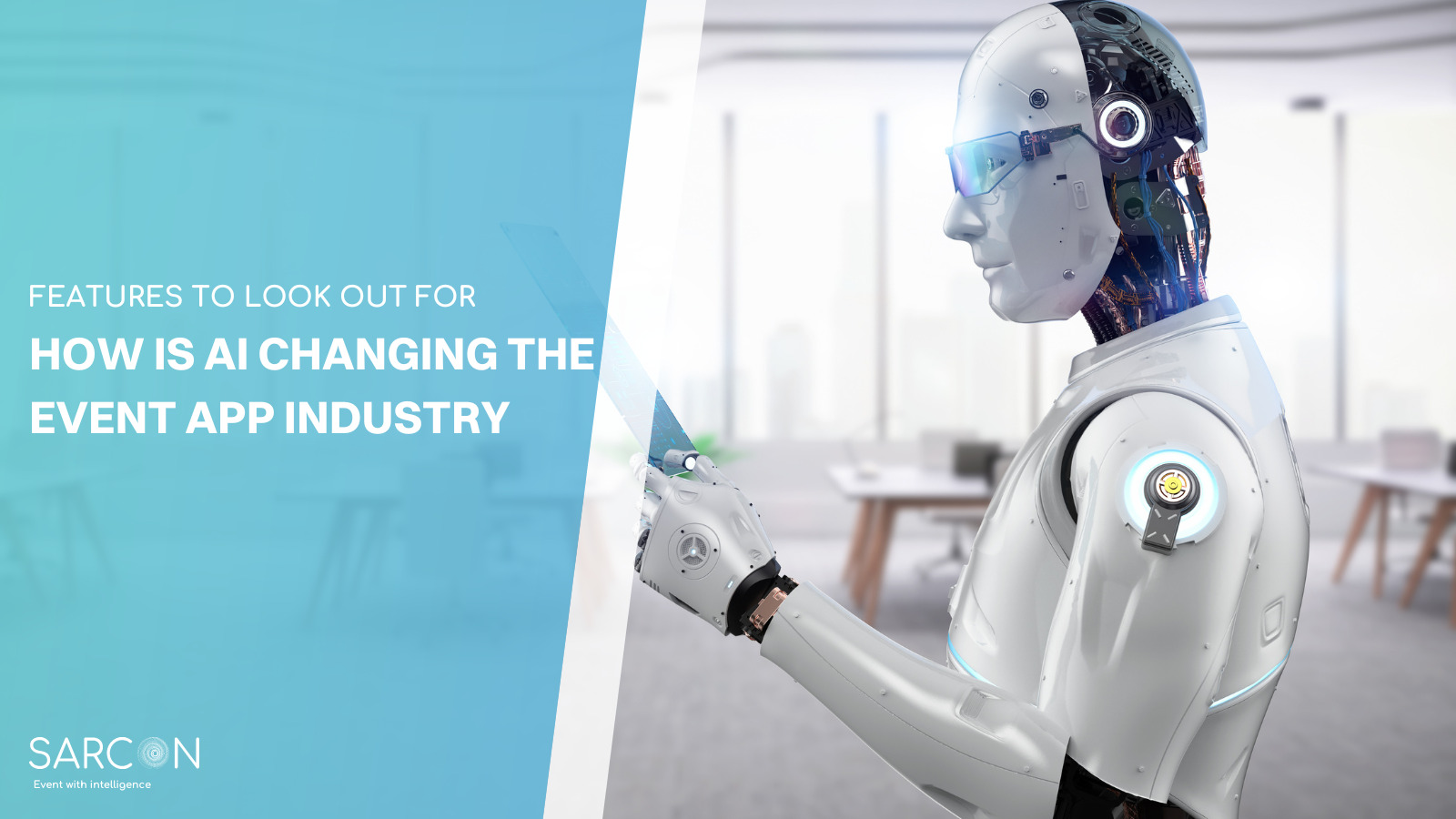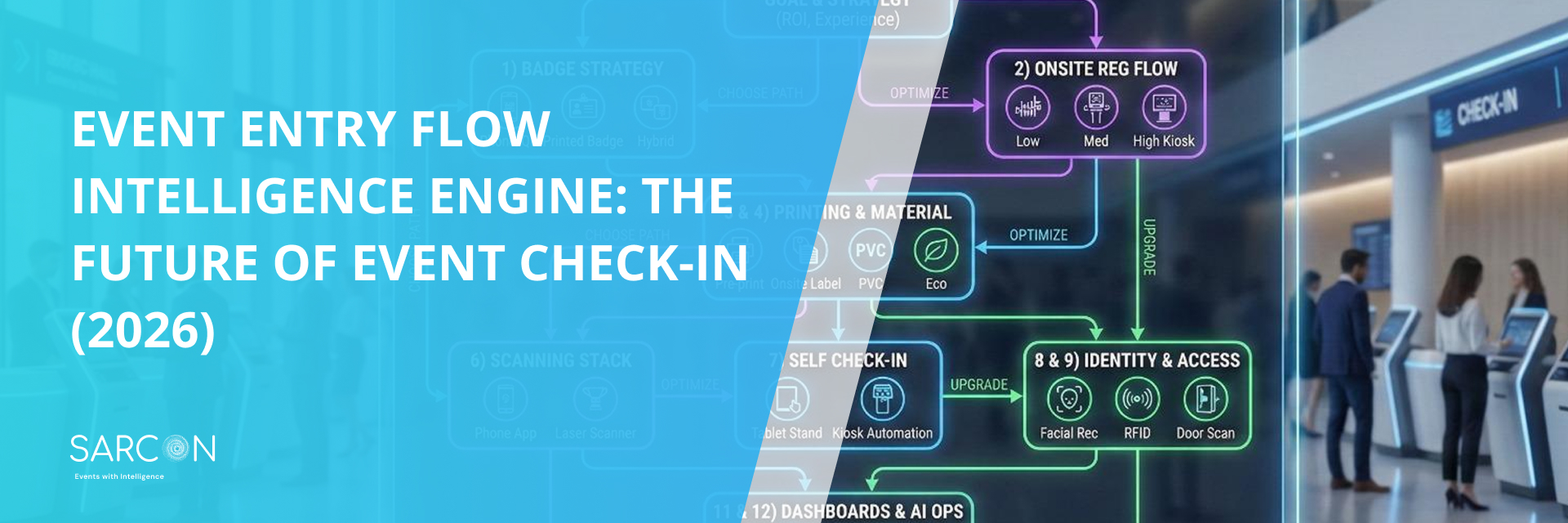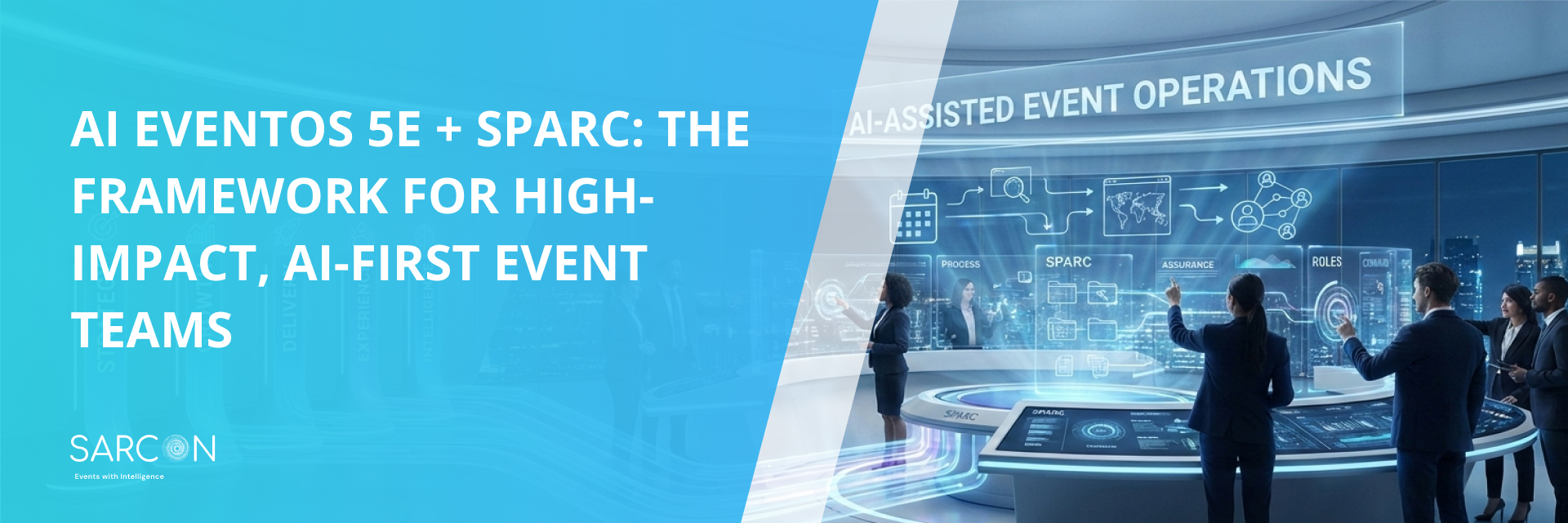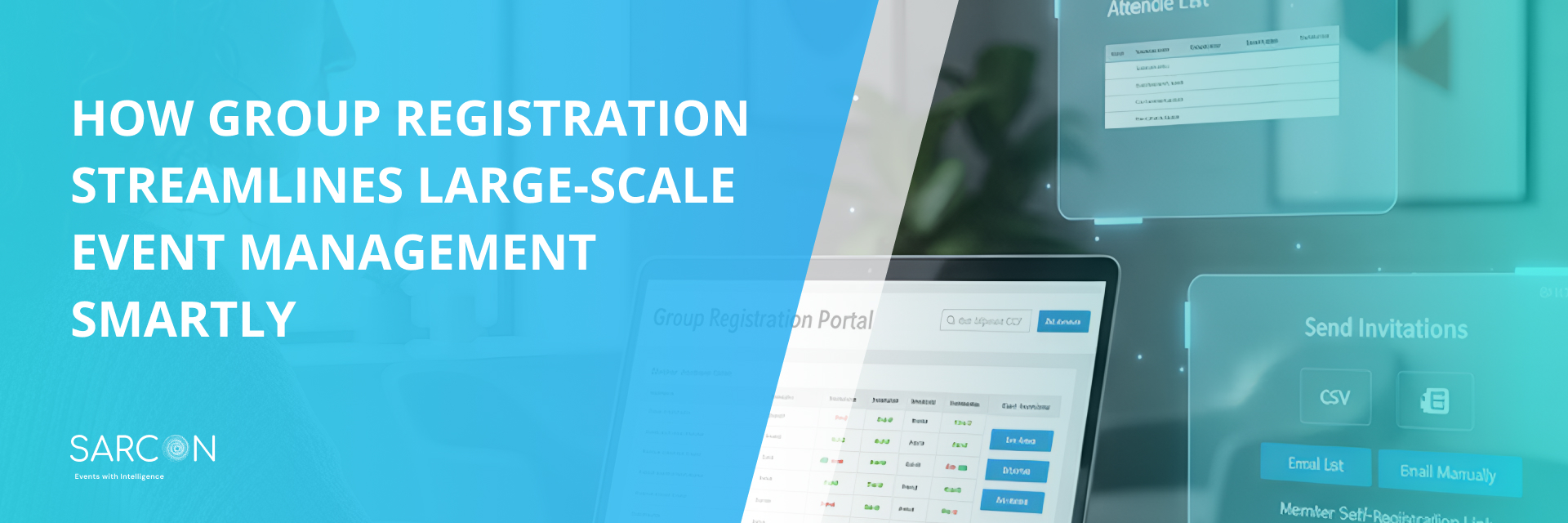The event app industry is undergoing a profound transformation thanks to Artificial Intelligence (AI). In this article, we’ll explore the remarkable changes AI is bringing to this sector and highlight the features you should be on the lookout for. With AI’s rapid evolution, staying informed is vital to stay competitive. Let’s delve into the future of event apps!
AI-Powered Event Personalization
One of the key ways AI is reshaping the event app industry is through intelligent personalization. AI enables event organizers to create highly personalized experiences for attendees. Using AI algorithms, mobile event apps can suggest tailored content, such as sessions, workshops, or networking opportunities based on attendees’ preferences and behavior.
AI not only recommends content but also adapts in real-time as attendees engage with the app. This level of personalization not only enhances attendee satisfaction but also drives engagement and participation.
Smart Networking and Matchmaking
The power of AI is evident in how it’s revolutionizing networking at events. AI-driven matchmaking algorithms connect attendees with similar interests, making networking more efficient and meaningful. These algorithms consider factors like professional backgrounds, interests, and even location to suggest valuable connectionsSuch features are particularly beneficial for B2B events where making meaningful connections can lead to fruitful partnerships and collaborations.
Moreover, AI-driven event apps can facilitate one-on-one meetings by scheduling appointments based on mutual availability, ensuring that attendees make the most of their time at the event.
Real-Time Feedback and Analytics
Gone are the days of post-event surveys with AI in the picture. Event organizers can now collect real-time feedback through event apps. AI algorithms analyze this data to provide immediate insights into attendee satisfaction, session popularity, and other critical metrics.
By having access to these real-time analytics, event organizers can make instant improvements, ensuring that the event runs smoothly and meets attendees’ expectations.
Predictive Analytics for Better Planning
AI-driven predictive analytics tools have become invaluable for event planners. By analyzing historical data, market trends, and attendee behavior, these tools can make accurate predictions about attendance, session popularity, and resource requirements. This enables event organizers to make data-driven decisions, optimize logistics, and allocate resources efficiently. Additionally, predictive analytics can help tailor marketing strategies for maximum impact.
For instance, predictive analytics can help determine which sessions are likely to be most popular, allowing organizers to allocate resources accordingly. It can also predict attendance numbers, helping organizers make data-driven decisions about venues and logistics.
Enhanced Content Recommendations
AI’s ability to understand attendee preferences goes beyond sessions and workshops. It extends to content recommendations. AI algorithms can suggest relevant articles, videos, or resources that align with attendees’ interests and the event’s theme. For instance, based on an attendee’s past choices or interactions, the AI can suggest relevant workshops, keynotes, or networking sessions, enhancing the overall event experience.
This feature not only enhances the overall event experience but also keeps attendees engaged with valuable content, fostering learning and networking.
Virtual Reality Integration
AI-driven virtual reality (VR) experiences have opened up exciting possibilities for event engagement. Attendees can immerse themselves in virtual environments, exploring product demonstrations, tour destinations, or engage in interactive simulations.
For example, a technology conference might offer a virtual tour of a cutting-edge lab or a VR demonstration of the latest gadgets. These experiences make events more immersive and memorable, leaving a lasting impact on attendees.
Real-time Language Translation
AI-driven language translation features are becoming increasingly important in the event app industry, especially for international conferences and events. These tools can instantly translate spoken and written content into multiple languages, breaking down language barriers and enabling attendees from diverse backgrounds to fully engage with event content and conversations. This not only enhances inclusivity but also expands the reach of events to a global audience.
Dynamic Content Delivery and Interactive Sessions
AI enables real-time adjustments to content delivery based on audience engagement. It can assess the level of interest during a session and suggest alterations to maintain engagement, such as interactive polls, quizzes, or adjusting the pace of the presentation. This ensures that sessions remain engaging and tailored to the audience’s preferences.
Social Media Integration
AI-powered event apps seamlessly integrate with social media platforms. Attendees can share their experiences in real-time, post updates, and engage with event-related content on their favorite social networks. This feature helps in creating a buzz around the event and increases its visibility.
Accessibility Features
Inclusion and accessibility are vital in the event industry. AI-driven accessibility features play a critical role in ensuring that events are accessible to all attendees, regardless of their abilities or disabilities. These features are designed to accommodate individuals with diverse needs, such as visual, auditory, or physical impairments.
AI-driven accessibility features within event apps provide tools like screen readers, text-to-speech functionality, subtitles, and alternative navigation methods. These features help attendees with disabilities to access event content, navigate through the app, and fully engage with the event’s offerings.
For more information on how to create Accessible Events read: Event Planner’s Guide to Creating Accessible Events
Advanced Search Functionality
AI-powered search capabilities make it easy for attendees to find specific sessions, exhibitors, or information within the event app. Attendees can quickly locate what they need, enhancing their overall experience.
These AI-driven search tools often incorporate predictive text and smart algorithms that understand user intent, offering relevant suggestions as the user starts typing. This feature significantly enhances the user experience by reducing the time taken to find desired information, ultimately making the event app more user-friendly and efficient.
Event Gamification
Gamification features powered by AI add an element of fun and interactivity to events. Attendees can participate in games, challenges, and quizzes, earning rewards and prizes. AI can create challenges and tasks for attendees to complete during the event. These challenges may include visiting certain booths, attending specific sessions, or engaging with other attendees.
AI in Event Marketing
AI is revolutionizing email marketing in the event app industry. Automated email campaigns powered by AI enable event organizers to reach out to attendees in a personalized and targeted manner. These campaigns are designed to engage attendees at every stage of the event, from registration to post-event follow-ups.
For example, AI identifies potential attendees based on their preferences and sends personalized invitations tailored to their interests, increasing the likelihood of attendance Automated reminders are sent to registered attendees, ensuring they don’t miss important sessions or key event updates. Furthermore, AI analyzes attendee behavior to send targeted promotional emails about specific sessions, speakers, or special offers, increasing engagement.
Streamlined Check-In and Registration
AI simplifies the often cumbersome registration and check-in processes at events. With facial recognition and AI-powered check-in apps, attendees can breeze through registration, saving time and reducing lines. This not only enhances the attendee experience but also reflects positively on event organizers.
Facial recognition is becoming more popular at larger events, where rapid and secure check-ins are essential. It offers a frictionless experience for attendees, allowing them to enter the event with minimal hassle.
Data-driven Insights and Reporting
AI-powered event apps are not only collecting vast amounts of data but also providing meaningful insights through analytics. Event organizers can gain valuable information on attendee preferences, behavior, and interactions, which can inform post-event follow-ups and future event planning. These insights can help fine-tune marketing strategies, improve event content, and boost overall event success.
AI-Powered Chatbots
Event organizers are turning to AI-powered chatbots to provide real-time assistance to attendees. These chatbots can answer common questions, offer directions, and even assist with registration or ticketing inquiries. By automating routine tasks, event staff can focus on more complex and valuable aspects of event management, while attendees enjoy seamless and instant support through the event app. Furthermore, AI-driven chatbots are becoming a staple in event apps.These chatbots offer a personalized experience and can handle a wide range of tasks, from event schedules to venue information.
Smart Resource Management and Sustainability
AI can optimize resource utilization, such as power, space, and materials, contributing to more sustainable event practices especially for large scale events. This could involve predictive energy consumption models, smart waste management, and efficient space utilization, reducing the event’s environmental footprint.
For more info read : The Role of Technology in Promoting Sustainability at Events
Enhanced Security and Fraud Detection
Security is a paramount concern for event organizers, and AI is playing a crucial role in this area. AI algorithms can detect fraudulent activities, such as ticket scalping, and enhance event security by identifying unusual behavior patterns. These systems can also help ensure data privacy and safeguard sensitive information.
Conclusion
The impact of AI on the event app industry is undeniable. From personalized event experiences to efficient networking, real-time feedback, and streamlined check-in, AI is reshaping the landscape. To stay competitive and provide your attendees with the best experience, it’s essential to embrace these AI-powered features. As AI continues to evolve, we can expect even more innovations in the event app industry.
FAQs
What is real-time feedback and analytics in the context of event apps?
Real-time feedback and analytics involve collecting and analyzing attendee feedback during the event. This data helps organizers make instant improvements and understand session popularity.
Can AI chatbots handle complex queries for event attendees?
Yes, AI chatbots are capable of handling a wide range of queries, from event schedules to venue information, providing personalized assistance 24/7.
How does AI ensure content recommendations align with attendee interests?
AI algorithms analyze attendee preferences and the event theme to suggest articles, videos, and resources that align with their interests.
What is the significance of real-time feedback for event organizers?
Real-time feedback allows event organizers to make immediate improvements, ensuring that the event runs smoothly and meets attendees’ expectations.



